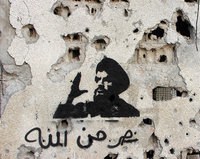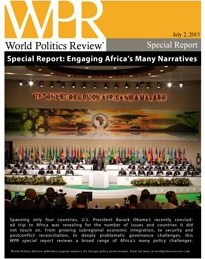
After 12 years of American pressure, al-Qaida’s core is, as President Barack Obama put it, “on the path to defeat.” That’s a good thing, but no one believes that crushing al-Qaida Central deep in its Pakistani sanctuary will mean the demise of the entire movement. Whether of necessity or as part of a deliberate strategy, al-Qaida has endorsed or adopted franchises across the Islamic world. Now American policymakers must assess the comparative danger posed by each of these and identify the most strategically significant ones. Counterterrorism experts often rate al-Qaida in the Arabian Peninsula (AQAP) the most active and lethal […]





